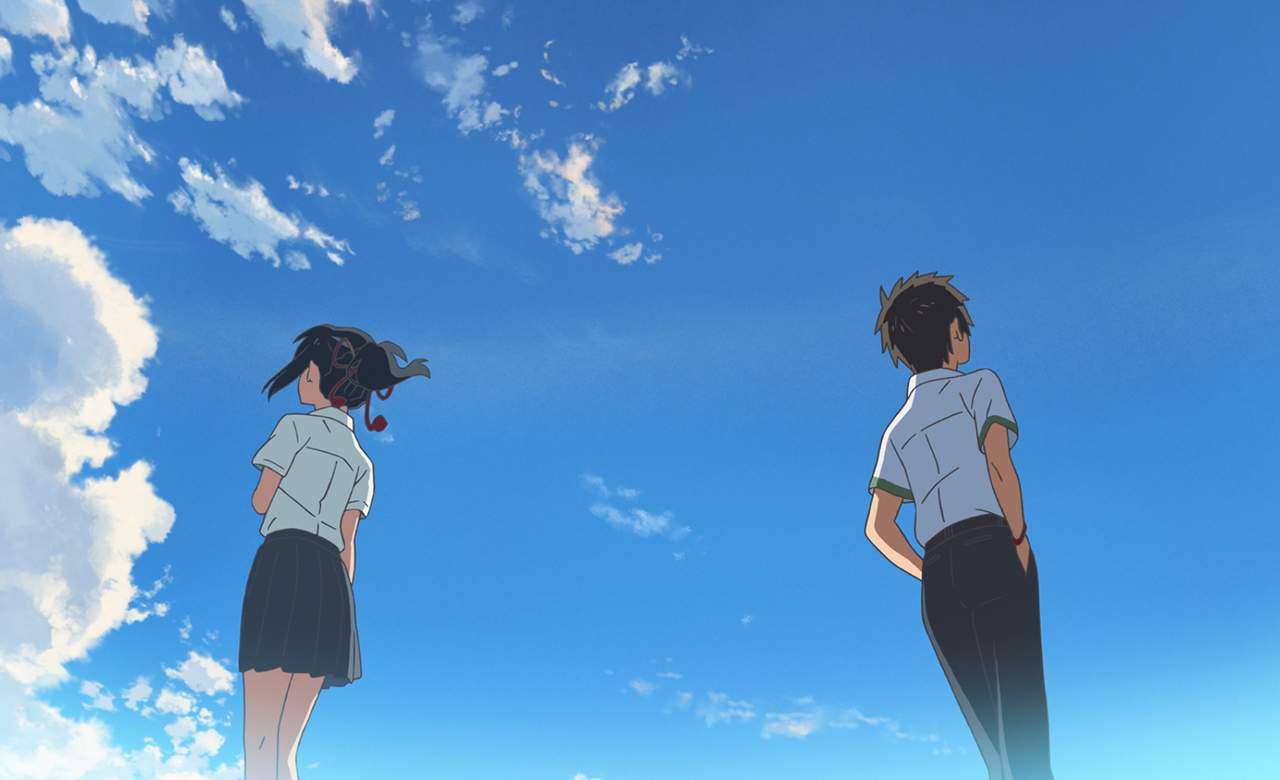Your Name
It's one of the most successful Japanese films ever made, from a director they're calling the next Miyazaki.
Overview
UPDATE, November 02, 2020: Your Name is available to stream via Netflix, Google Play, YouTube Movies, iTunes and Prime Video.

Most mornings, when her younger sister comes to wake her up, Mitsuha (voiced by Mone Kamishiraishi) is fondling her own chest. It becomes an ongoing joke between the siblings, but there's more than awkward teenage self-exploration at play. Most mornings, you see, her body is actually inhabited by someone else. Mitsuha is a high school student from the quiet town of Itomori, and when she asks the universe for a more exciting life, that's actually what she gets. Swapping bodies with the city-dwelling Taki (Ryunosuke Kamiki), she's soon working his shifts in an Italian restaurant, while he's fumbling through her classes and forgetting to make breakfast.
It's a premise straight out of a body-swap movie — think Freaky Friday, Dating the Enemy and The Change-Up, to name a few. Mitsuha and Taki change bodies on alternating days, but they can't remember each other's names. To navigate the chaos of suddenly becoming someone else, they communicate via notes left in their phones, gradually settling into a routine. Alas, just as they start to feel comfortable switching into each other's skin, learning from their escapades and forming a growing connection, fate once again intervenes.
In his fifth feature Makoto Shinkai (The Garden of Words, Children Who Chase Lost Voices) dives head-first into the offbeat yet insightful adventure that comes with literally putting his protagonists in someone else's place. However, taking inspiration from the traditional Japanese tale Torikaebaya Monogatari, Your Name proves more than just a quirky comedy. Starting with a meteor shower accompanied by narration about "that day when the stars came falling, like a dream…a shared dream," Shinkai flirts with everything from star-crossed romance to impending disaster, as well as notions of identity, gender, the ever-changing reality of life, and the difficulty of reconciling many everyday contrasts.
It's telling that Shinkai highlights the dream-like nature of the material from the outset. An ethereal air infiltrates each scene, while the gorgeous, glistening animation makes every moment feel both hyper-realistic and like a fond memory. Indeed, the script's numerous charms are matched by endless visual delights. Full of montages and catchy pop songs, the film plays out in a recognisable world – particularly for anyone who has ever visited Tokyo. Yet it feels just as magical as it would were Mitsuha and Taki being spirited away to another realm.
That's one of the reasons that the M word keeps being thrown around: 'Miyazaki', that is. Thanks to the film's phenomenal popularity in Japan, Shinkai has been dubbed the spiritual successor to the Studio Ghibli great — and while that's high praise, it also fails to capture just what makes the film such a treat. Part teen rom-com, part sci-fi contemplation of weighty concepts, the anarchy and confusion of life has rarely felt so vivid, honest or enchanting.





